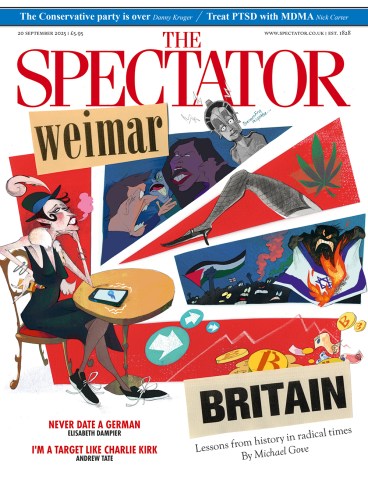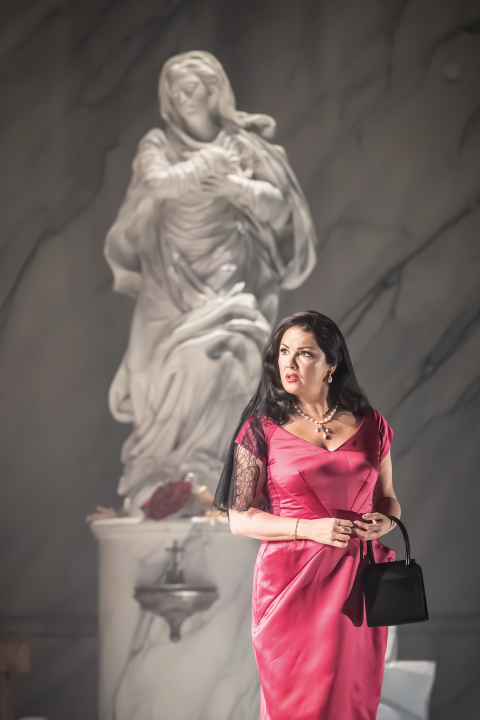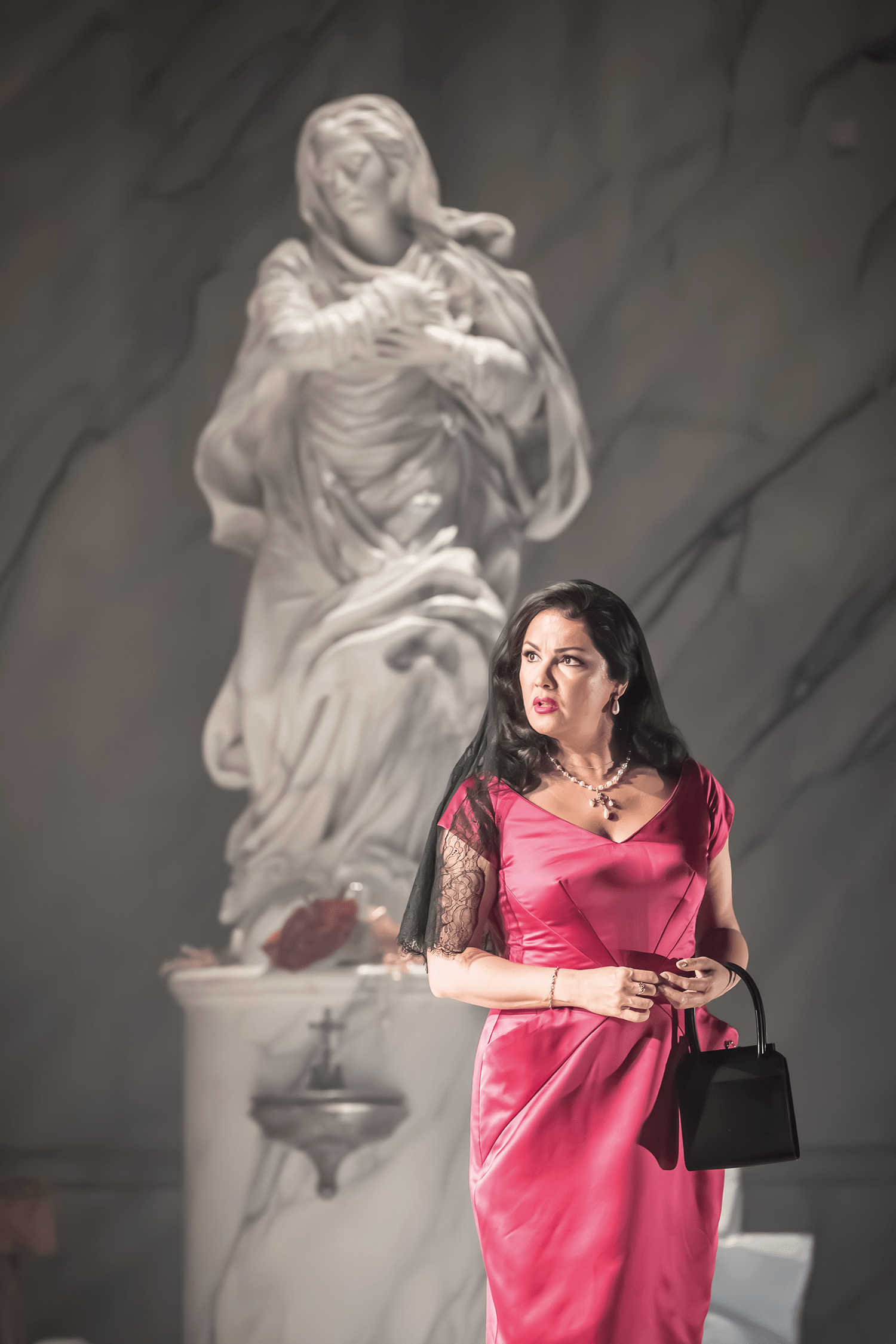
In the opera world, you’re never far from a Tosca and last week we had two of them, both brand new. That’s healthy: any opera company with a functioning survival instinct is wise to maintain a stock of solid, revivable Puccini favourites. Critics yawn, academics snipe, but Puccini prevails because the simple fact is that Tosca is a straight-up banger. I took a Tosca virgin to the first night in Cardiff. She hadn’t read a synopsis or done any of those homeworky things that novice opera-goers are told they should do, but which they really, really shouldn’t need to. ‘This is bloody marvellous, isn’t it?’ was her reaction after Act Two.
Welsh National Opera has acquired the American Psycho-ish updating that Edward Dick originally directed in 2018 for Opera North. Back then it was suggested – risibly – that Dick’s totalitarian dystopia, with its balaclava-clad death squads, was a commentary on Trump’s America. That’s gone now, though the staging retains the huge bank of spotlights which occasionally dazzle the audience: a gimmick which was getting tired before Covid and is now merely an irritant, one which prompted a shout of protest from the audience and punctured the tension of the final scene.
That apart, Dick’s revived production looks striking and solves many of the dramatic problems that are created when you prise Tosca out of its very specific location and period (the shepherd boy, for example, becomes a sort of hallucination). It worked best in Act Two, the opera’s hot, writhing heart. A beefcake Scarpia (Dario Solari) lounges shirtless in his executive bedroom – the manosphere influencer of your nightmares, livestreaming Cavaradossi’s torture on his laptop. The details make it credible. Solari shivers with suppressed lust during the Te Deum, and rolls his wine around the glass, lips smacking as he imagines what he’ll do to Tosca.
True, you’ll hear blacker-sounding Scarpias, but this was still a characterisation to match Andres Presno’s impassioned Cavaradossi and Natalya Romaniw’s Tosca, an interpretation that continues to grow in spontaneity and vocal sophistication. Romaniw has a wonderful palette of vibrato. You hear the playfulness and vulnerability in her voice; feel it tighten into fear in Act Two, then witness it curdle into savagery as she delivers her fatal ‘kiss’. Her ‘Vissi d’arte’ was a desperate prayer, delivered huddled on the floor, and the audience’s muted response said more than any ovation.
Gergely Madaras conducted, building powerful cumulative climaxes (I’ve not heard the offstage cantata in Act Two generate quite such a sense of menace) and leaning into the score’s more ominous colours and subcurrents. For all the slickness of the visuals, this was anything but a superficial Tosca, and as it tours and matures it deserves to do good business for Welsh National Opera – which is still being brutalised by the real villains of the evening, the Arts Councils of England and Wales.
Others have discussed the politics of Nebrenko’s return. I’m here to tell you how she sang. Answer: superbly
Oliver Mears’s new staging at Covent Garden will probably have legs, too. It’s another updating – this time to a sort of parallel universe 1990s, where Italy is a warzone – and it benefits from recognisably Roman settings by Simon Lima Holdsworth: a bomb-damaged baroque church; a huge, fascistic office building. It’s the inaugural production for the Royal Opera’s new music director, Jakub Hrusa, and for its opening performances it stars Anna Netrebko, whose appearance in London for the first time since Putin’s war prompted a small but eloquent pro-Ukraine demonstration on the pavement outside.
Others have discussed the politics of Netrebko’s return elsewhere. I’m here to tell you how she sang and the answer, once again, is superbly. Perhaps the voice is a little more loose-grained around the lower edges; certainly her acting isn’t absolutely as subtle as her two co-stars, Freddie de Tommaso (Cavaradossi) and Gerald Finley (Scarpia). She gave her ‘Vissi d’arte’ standing in a spotlight with arms outstretched, to near-hysterical applause. But Floria Tosca is, after all, a diva; and with Netrebko, a diva is exactly what you get. She still has that astonishing ability to project softness with luminous power; to draw out a phrase so that time is suspended and the air around her seems to shimmer and glow.
In short, she’s still got it; and for once she was singing among equals. De Tommaso brought impulsive humanity and virile, soaring arcs of sound, and Finley was irresistibly creepy as a fidgeting, takeaway-slurping Scarpia who – with his double-breasted suit and 1980s moustache – resembled no one so much as Swiss Toni, the used car salesman from The Fast Show. The banality of evil, and bad hair to boot. The orchestra sounded resplendent; audibly energised by Hrusa’s vivid, responsive conducting. Netrebko finishes on Sunday but Hrusa, Finley and de Tommaso continue for the rest of the run and are worth your time and money regardless.








Comments